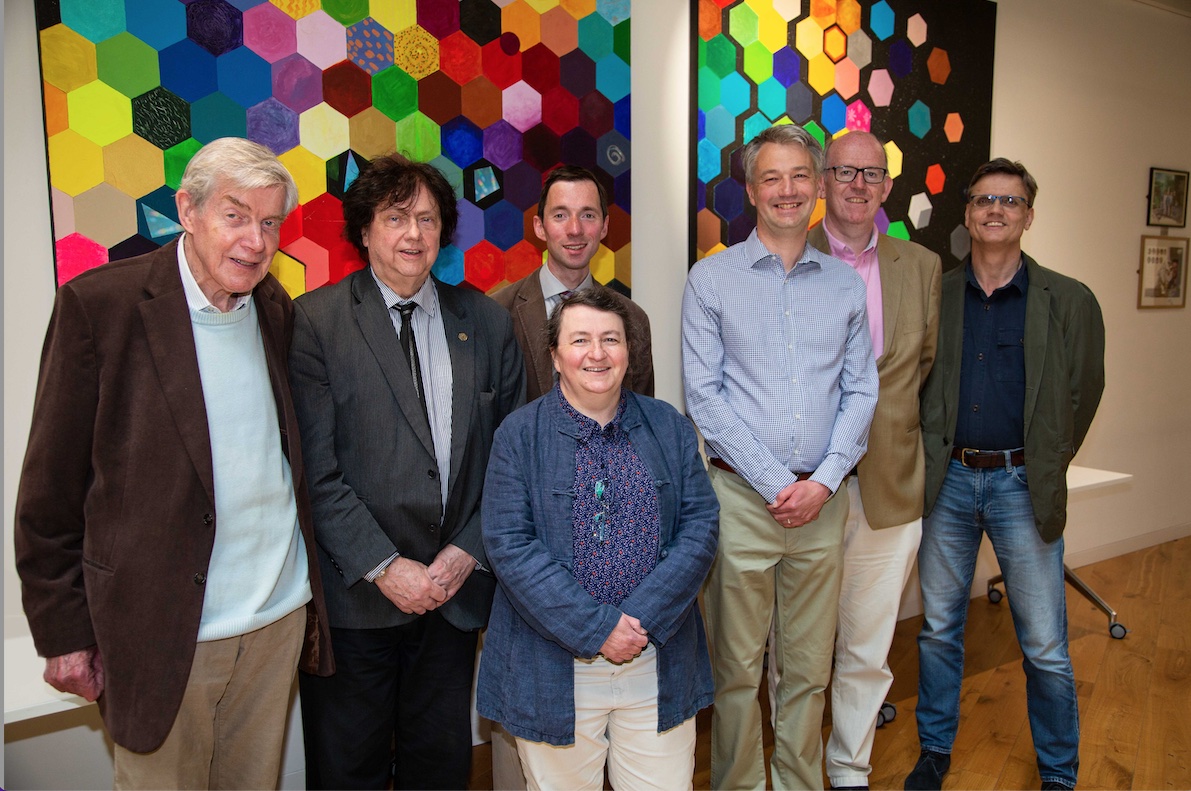The Rochester Lecture 2023

The annual Rochester Lecture for 2023 took place on Wednesday 31 May, and was this year delivered by Dr Richard Bowman, a Royal Society University Research Fellow and Reader specialising in microscopy and open hardware. The lecture was titled “Smart microscopy for everyone with open source hardware”, concerning both the OpenFlexure project and OpenFlexure Microscope.
In an ideal world, any published experiment could be reproduced exactly from the scientific record, but in practice this is often hard or impossible. The OpenFlexure project uses open source hardware and software methodologies to address many of the challenges we face when sharing a complicated instrument. Dr Richard Bowman's lecture covered both the technical achievements of the OpenFlexure Microscope, and the community that has grown up around the design.
Dr Bowman touched on how we have embraced open development, and on how that has helped the project grow in reach and impact. Our use of software tools to support hardware development has led to the development of bespoke tools for documentation, and libraries for instrument control. He discussed how the tools and approaches used in the OpenFlexure Project can be generalised to other experimental science projects, to improve both reproducibility and accessibility.
About the OpenFlexure Microscope
Designs, instructions, and code for the OpenFlexure Microscope are shared under open licenses, using tools and platforms developed for open software. This open documentation has been used to replicate the microscope by hundreds of people, in over 40 countries, in settings from hack spaces to super-resolution imaging labs.
The OpenFlexure Microscope is a digital optical microscope, complete with high resolution 3-axis motorised positioning and configurable imaging modes. On its own, it is a reliable instrument for bright field or fluorescence microscopy, but it is also a platform for more complicated imaging techniques, where it provides an easy way to include the fundamentals of a microscope (imaging optics and mechanical design) in a larger instrument. We have included interfaces for automation and integration of the OpenFlexure Microscope into experiments and protocols, and are now working on higher-level software tools to ensure reliable calibration and operation. Much of this builds on our “Internet of Things” architecture, where an embedded computer in the microscope makes it easier to use and to program.
Biography of the Speaker
Dr Richard Bowman is a Royal Society University Research Fellow and Reader specialising in microscopy and open hardware. His research group is at the heart of the OpenFlexure project, which he started in 2015 while a research fellow in Cambridge. His first independent position was at the University of Bath from 2017, where he held several GCRF projects with Tanzanian collaborators investigating the use of locally produced microscopes for malaria diagnostics. He moved to the University of Glasgow in 2022, where his lab continues to develop the OpenFlexure microscope, work on a range of problems in microscopy, and push forward open hardware and software as a vehicle for making experimental science more reproducible.
About the Rochester Lecture series
This annual public lecture is arranged by the Department of Physics in memory of Professor George Rochester who, after making history in the 1940’s when he discovered nuclear matter that was heavier than the known particles, protons and neutrons, came to Durham University, Physics in the 1950’s. The lecture brings outstanding, nationally recognised figures in science to Durham - former speakers include Professor Jun Ye, Sir Peter Knight FRS, Professor Pascale Senellart, Dr Monica Grady and Professor Heather Lewandowski.


/prod01/prodbucket01/media/durham-university/departments-/physics/teaching-labs/VT2A9034-1998X733.jpeg)